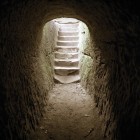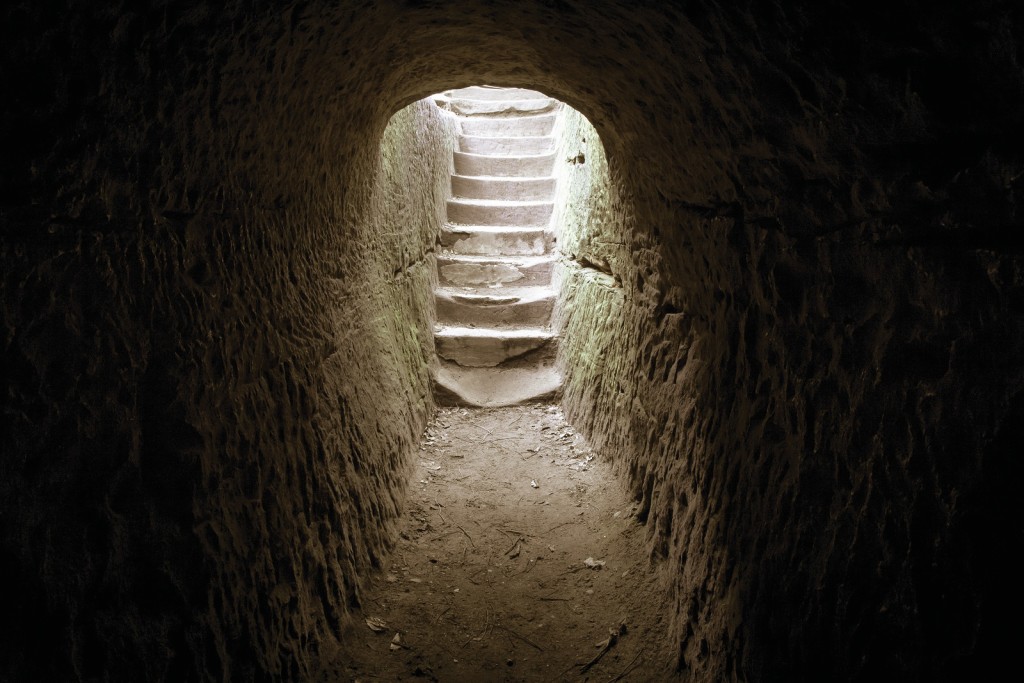
Feb 22, 2016
Phil Lawton
SDB Church of Shiloh, NJ
It’s Easter, so you might think that I am going to be talking about bunnies and eggs and pastel colors. Nope. I want to talk about Zombies. Yes, you heard me right…Zombies. At this point some of you might be thinking I have gone off the deep end. Well, I might have, but that is not why I am talking about Zombies.
A few years ago, I saw an image on BuzzFeed that told us that Jesus was not a Zombie. After all, Zombies eat humans and Jesus most certainly did not. It continues that He is not a ghoul since they continue to decay. This goes on through things like vampires and ghosts, and ends with the conclusion that Jesus is a lich. The explanation is that a lich uses magic to return a soul to a body for the express purpose of living forever. Oh, and a lich has the power of necromancy.
Now this image was meant in jest, and as someone who understands the fantasy world, I laughed. But it also made me think. What do we believe about the resurrection? What does it mean for our lives? Was Jesus some kind of “Biblical lich”?
The answer to the last question is most certainly “no.” But the other questions are good questions to ask. What we believe about the resurrection has a dramatic impact on our faith. Paul tells us in 1 Corinthians 12:19 that if Jesus
is not raised, “we are of all men most to be pitied.” (NASB) This is not some hyperbole of Paul. For Paul the central hope of Christianity rests in the resurrection of Jesus. If this is true, then a full understanding of the resurrection is central to all Christian belief.
What DO we believe about the resurrection?
This brings me back to BuzzFeed and the “Jesus Zombie.” That image was created because it was very popular for people on Facebook to post “Happy Zombie Jesus Day.” After all, isn’t everyone who comes back from the dead a Zombie? Well, the creator of that image understood this was not the case and sought to inform the world.
I agree with the intent of the creator — Jesus was certainly not a Zombie. Yet the conclusion is not correct either. What the creator did in jest was actually the start of a great exegetical concept. The problem with concluding that Jesus was a lich is that it assumes that Jesus falls into some understood category. The miracle of the resurrection is that it was something completely new. It was something that had never before happened and has not happened again since.
The astute among you may say, what about Lazarus from John 11? Or those raised at the crucifixion mentioned in Matthew 27:52-53? Or Elisha and the Shunammite’s son in 2 Kings 4:18-37? You would be right to say that in all of these cases someone was raised from the dead. But here is the difference: Each of them died again.
The difference with Jesus is that He did not die again. If we use the image from BuzzFeed, we might say that in each case they were ghouls — their bodies were still aging. No, Jesus was something very different.
We find in the gospels that the resurrected Jesus is able to appear and disappear in the blink of an eye (see Luke 24:13-35, specifically verse 31). Later we see that He is
able to get into a locked room (See John 20:19). To some this might indicate that Jesus was some kind of spirit with the ability to appear and disappear at will and potentially walk through walls. Yet the image from BuzzFeed assures us that He had physical form and still had His wounds. Guess what? That’s true.
If we look at the rest of the account in John 20:19-29, we find that Thomas is able to touch the wounds of Jesus. Luke’s account of this (24:36-43) adds that Jesus ate fish with them. A spirit would not be able to be touched nor would it be able to eat fish.
The conclusion then is Jesus is a lich, right? No. Jesus is God. This is the problem with the image on BuzzFeed. It ignores one of the central tenets of Christianity. Oh don’t get me wrong, there were several councils in church history where just exactly how Jesus is God was discussed. (Spoilers, they couldn’t agree with exactly how, but they did agree with things He was not. Namely a spirit or only a human.)
What does the resurrection mean for our lives?
I have already said that Paul thinks the resurrection is of vast importance. But why? Well, for Paul, Jesus is the first fruit of the hope to come. (See 1 Corinthians 15.) Because Jesus was raised, we will be raised. Because Jesus defeated death, we do not have to fear death (verses 20-23). These are amazing promises!
Yet there is more. Paul goes on to tell us that the bodies we will be raised in will be changed bodies. Our resurrected bodies will be bodies of glory (verse 43). We will
not have to worry about sickness and weakness and death. Again, these are great promises!
But this also brings up another point that I must say. Our hope is not heaven. At least not as we often think of it. Paul does not say that we will be spirit beings with harps and halos. No. Paul declares that we will have physical bodies. They will certainly be glorified bodies, but they will be bodies. Our hope is not to leave behind a shell but to be reconstituted into a better body.
We find in Revelation 21 that there will be a new heaven and new earth (verse 1) and that heaven will come down and meet earth at the new Jerusalem (verse 2). More than that, we find that God comes and dwells with His people! (Verse 3) We find that He will wipe every tear, and there will be no more mourning, and no more crying, and no more pain. (verse 4). How great are these promises!! This is the hope of Christianity! This is the reason for Paul’s confidence even in the face of death. And this is the reason that Easter is a celebration.
Easter is not about candy and bunnies and eggs. No, Easter is about victory. Victory over Satan. Victory over death.Victory over pain and sorrow and crying. Easter reminds us of the hope of Christianity!
I leave you now with a passage from my favorite book by one of my favorite theologians. N.T. Wright has this to say about Easter in Surprised by Hope:
The bodily resurrection of Jesus is more than a proof that God performs miracles or that the Bible is true. It is more than the Christians’ knowing of Jesus in our own experience (that is the truth of Pentecost, not of Easter). It is much, much more than the assurance of heaven after death. (Paul speaks of “going away and being with Christ,” but his main emphasis is on coming back again in a risen body, to live in God’s newborn creation.) Jesus’s resurrection is the beginning of God’s new project not to snatch people away from earth to heaven but to colonize earth with the life of heaven. That, after all, is what the Lord’s Prayer is about.1
1 N.T. Wright. Surprised by Hope: Rethinking Heaven, the Resurrection, and the Mission of the Church. (New York: HarperCollins, 2008), 293.


